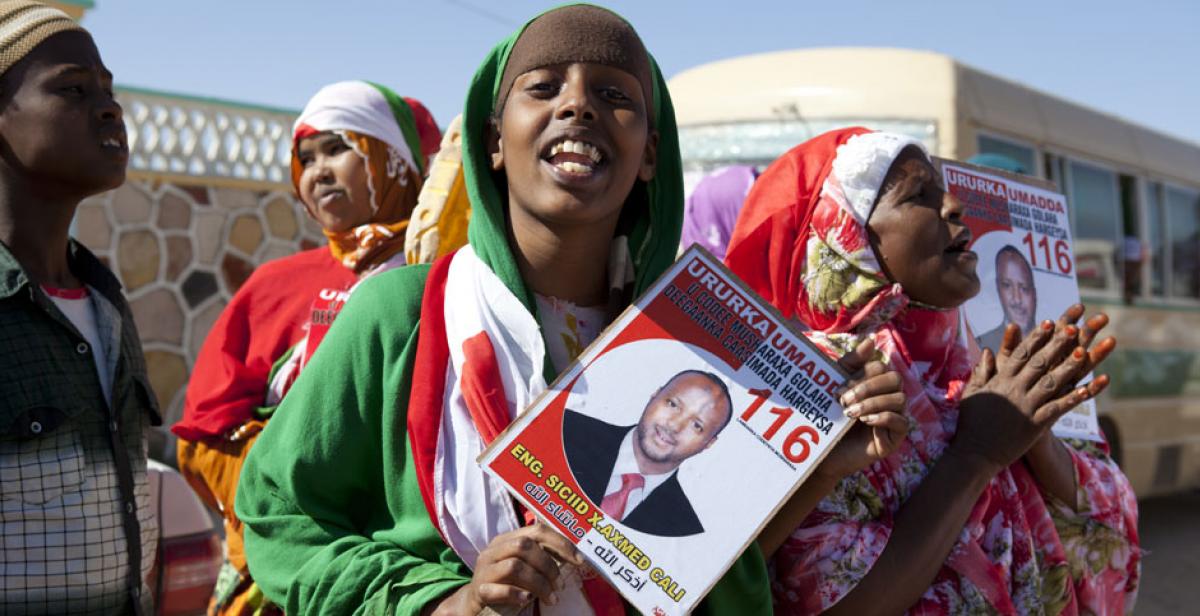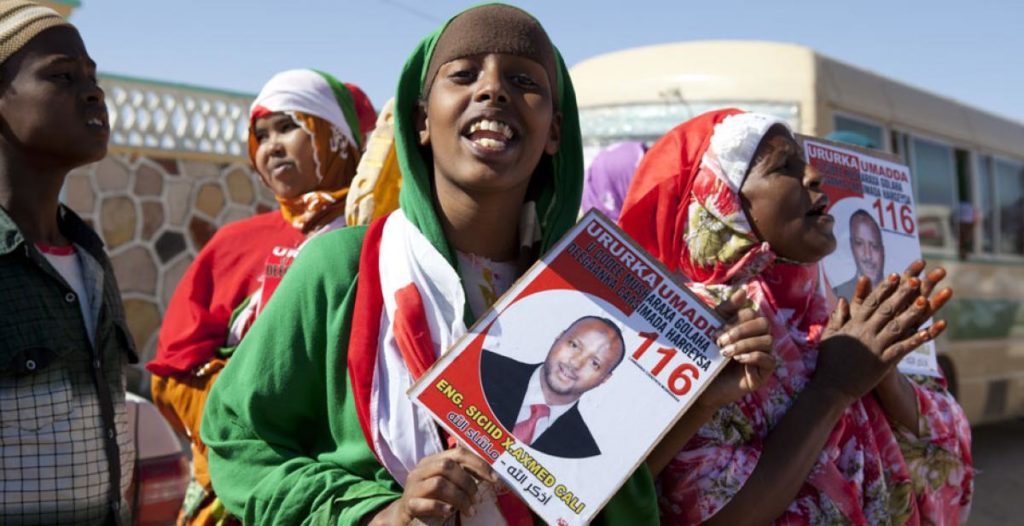SOMALILAND VOTES: An overview of the November 13 Presidential election


Upwards of 700,000 voters in the break-way region of Somaliland will be casting their vote next Monday for a new president ending a two year delay in choosing a new leader to replace the outgoing President Ahmed Silanyo who has been in office since 2010.
The Somaliland National Electoral Commission (SLNEC) said last month it had received all the voting materials and that 704, 089 voters would be taking part in the poll.
The electoral body said is deploying an iris recognition-based voter registration system billed as a first in the continent.
The elections will take place in four regions namely Sool, Sanaag, Maroodi-Jeex, Togdherer and Awdal.
Three candidates are contesting for the top seat to replace Silanyo who settled for Muse Bihi as his successor in the ruling party Kulmiye. Others are long serving Lower House speaker Abdirahman Iro (Wadani party) and Fesal Ali Warabe (UCID party).
Abdirahman Abdullahi Seyihi is Bihi’s running mate while Wadani’s Iro is deputised by Amb Mohamed Ali Aw Abdi. Prof. Ahmed Abdi Muse is Warabe’s running mate.
Somaliland constitution sets the maximum number of political parties at three.
The Presidential election system is a first-past-the-post (FPTP) meaning the candidate with the most number of votes is declared winner. The President is elected jointly with his/her running mate who shall then serve as vice president.
The region conducted its first president elections in 2003 and a second in 2010. A presidential term runs for five years but the current President has been in office for seven years now owing to delays from 2015.
The International Community put pressure to Somaliland early in the year to ensure elections are conducted this year after a March 2017 deadline was extended to September and subsequently to November. The region aid the delay was occasioned by need to respond to the drought which has affected millions in Somalia.
According to Somaliland Electoral Law 2009, the Chair of the Electoral Commission only announces the Provisional Results while the Supreme Court has the final authority on determination of the ultimate results after reviewing any emerging complaints.
Candidates:
Fesal Ali Warabe: UCID Party
Fesal was born in 1948 in Hargeisa and pursued his high school and university in Russia in 1973 where he acquired a degree in engineering from Beeta Bek University.
Founded UCID party in 2001 and became its first chairman. He contested in the 2003 presidential elections where he emerged third.
H speaks English, Somali, Arabic, Russian and Finnish languages.
Abdirashid Mohamed Abdullahi – Wadani Party
Born in 1955 in Hargeisa and went on to graduate from SIDAM Institute in Mogadishu. Abdullahi served as Economic Chancellor in Somalia’s embassy in Russia between 1988 and 91 before becoming head of mission in the same embassy from 1991 to 1996.
He became the deputy secretary of UCID from 2006 to 2010.
He speaks English, Arabic and Finnish.
Muse Bihi Abdi: Kulmiye Party
Born in 1948 in Hargeisa, Muse served as pilot in Kazakhstan in 1973 and later took up various roles in the air force including as Deputy Operating Commanding Officer in Bali Dowgle military airport in 1975.
He defected to the Somali National Movement (an anti- Siad Barre movement that would later lay the ground for Somaliland’s declaration for self-determination) in 1985 and became its commander.
Muse became Somaliland’s Interior minister between 1993 and 1995
In 2010, Mr Musa Behi became the chairman of Somaliland’s Kulmiye Party and in 2015, he was elected in the Party Congress as its presidential candidate in the forthcoming elections of Nov. 2017.
He has a masters degree in Conflict Resolution from the University of Hargeisa.